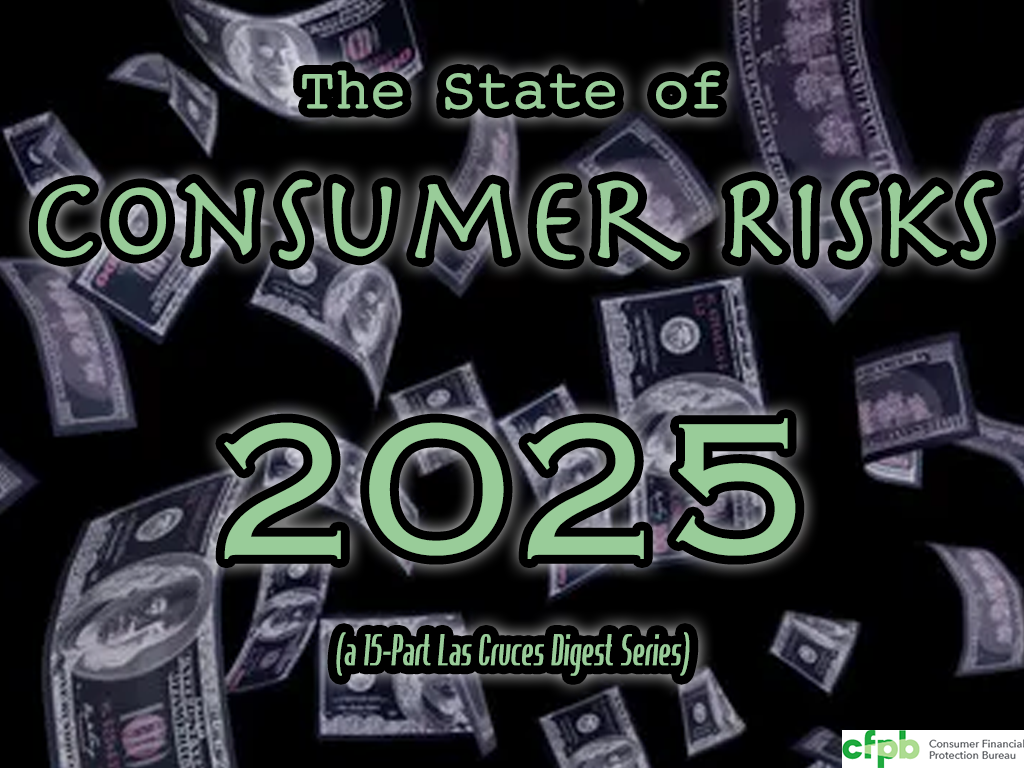-and-
Surviving family members or spouses report being caught in a customer service doom loop.
Source: Consumer Financial Protection Bureau
WASHINGTON, D.C. — On December 17, 2024, the Consumer Financial Protection Bureau (CFPB) issued a report on the experiences of homeowners dealing with their mortgage company after divorce or the death of an original borrower. Many homeowners report that their servicers push them to take on new, higher-interest loans instead of keeping their existing mortgage. Homeowners also report recurring requests from servicers for the same or updated documents extending over months and sometimes years, at the same time they are dealing with the death of a loved one or a divorce. Domestic violence survivors face additional challenges, including mortgage companies continuing to send critical mortgage information to the abuser and thus putting the survivor’s safety at risk. Servicers generally blame investor requirements, processing volumes, or “systems issues,” rather than taking responsibility for their shoddy customer service.
“When someone loses a spouse or goes through a divorce, the last thing they need is their mortgage servicer giving them the runaround or pushing them into an unaffordable loan,” said CFPB Director Rohit Chopra. “Mortgage servicers have clear obligations under federal law to help these homeowners.”
“Assumptions are a fundamental feature of a VA-guaranteed loan, and when a Veteran passes away, their qualified surviving spouse should be able to assume the loan without further delay,” said Joshua Jacobs, Under Secretary for Benefits at the Department of Veterans Affairs. “It’s unacceptable that anyone would target surviving spouses in their time of need. VA has published guidance to remind holders and servicers of assumption guidelines — and we’ve outlined how VA will address any failure to comply with these requirements.”
Each year, many Americans become homeowners following the death of a spouse or family member, or through divorce. If there is a mortgage on the home, these homeowners must make sure the mortgage payments are made on time to avoid foreclosure. Federal rules and mortgage program guidelines require servicers to help these successor homeowners get information on the existing mortgage, including how to make payments and evaluation for help making their payments through a loan modification, if necessary. Homeowners who want to modify their loan payments or remove a borrower from the mortgage must typically accept legal responsibility for the payments or “assume” the mortgage, and they may need to go through an investor or federal mortgage agency’s underwriting process.
Homeowners report problems accessing basic information and having their assumptions processed with loans insured by VA and other federal agencies.
Based on its review of consumer complaints, the CFPB has identified multiple areas of concern, including:
- Pressure to take out higher-interest loans: Homeowners report servicers telling them they must refinance their mortgages at today’s higher interest rates even though federal mortgage guidelines allow them to maintain the existing loan terms.
- Repeated delays and paperwork requests: Many homeowners report waiting months or even years for servicers to process their paperwork, with some reporting that servicers repeatedly request the same documentation or fail to respond to inquiries.
- Refusals to release the original borrower from liability: Some homeowners report that servicers are denying their requests to remove the original borrower from the mortgage, even when the successor homeowner has been making all payments on the mortgage for years.
- Risks to domestic violence survivors: Survivors of domestic violence have reported that servicers continue sending account information to their abusers and require their abusers’ consent for account changes, potentially creating safety threats.
The Department of Veterans Affairs encourages VA home loan borrowers to contact their servicer to resolve concerns with their existing mortgages. Borrowers may also call 877-827-3702, between 8 a.m. and 6 p.m. ET, to contact the nearest VA Regional Loan Center and speak with a VA representative regarding their individual home loan situation for counseling and guidance.
Additionally, the CFPB urges investors and guarantors to:
- Review mortgage servicers’ policies and procedures to ensure that they are complying with all applicable law and guidance, including the guidance provided by the federal mortgage agencies.
- Ensure their policies are not unnecessarily pushing successor homeowners to refinance their mortgages.
- Examine whether their underwriting requirements are posing an undue obstacle to mortgage assumptions where the successor demonstrates an ability and willingness to pay.
- Develop, with mortgage servicers, policies and procedures to protect the rights and safety of successor homeowners who are survivors of domestic violence.
The CFPB has previously taken action to protect homeowners who are successors in interest. As part of the CFPB’s 2013 mortgage servicing regulations, the CFPB established requirements for servicers to facilitate communications with successors in interest who are surviving family members. In 2014, the CFPB published an interpretive rule to clarify that the CFPB’s Ability to Repay Rule does not apply where a successor in interest who has acquired title to a property agrees to be added as obligor or substituted for the existing obligor. In 2016, the CFPB expanded mortgage servicing protections for successors in interest who receive property upon the death of a relative or joint tenant; as the result of divorce or legal separation; through certain trusts; or from a spouse or parent.
Homeowners have the right to clear, consistent, and timely information from mortgage servicers. Homeowners who get the runaround or experience pressure to refinance an existing mortgage on their home should file a complaint with the CFPB. Homeowners can submit complaints about financial products and services by visiting the CFPB’s website or by calling (855) 411-CFPB (2372).
Employees who believe their company has violated federal consumer financial protection laws are encouraged to send information about what they know to whistleblower@cfpb.gov. To learn more about reporting potential industry misconduct, visit the CFPB’s website.






